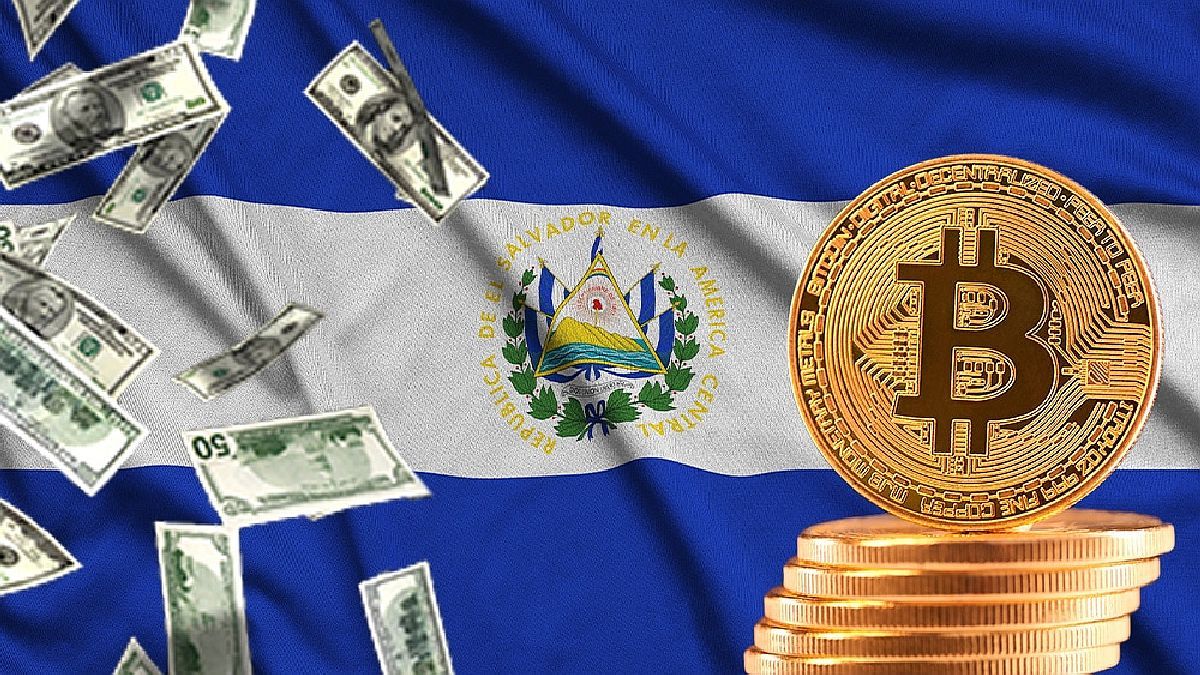With global borrowing costs on the rise and a large debt payoff on the horizon, El Salvador has other fiscal headaches besides the impact of the cryptocurrency fading. But the cryptocurrency crash has also closed off some potential exit ramps from the crisis, including the now-postponed bitcoin bonus.
“The government’s financial problems are not because of bitcoin, but they have gotten worse because of bitcoin,” said Ricardo Castaneda, senior economist and country coordinator for El Salvador and Honduras at the Central American Institute for Fiscal Studies (ICEFI). For the government, he added, “bitcoin is no longer a solution and has become part of the problem.”
Bitcoin has fallen 45% since El Salvador officially adopted it in early September, and 26% since its May high, as crypto assets have been dragged down by a risk-averse environment.
The combined market value of all cryptocurrencies recently fell to $1.2 trillion, down less than half from November, according to data from CoinMarketCap.
El Salvador’s debt stood at 24.4 billion dollars as of December, from 19.8 billion dollars at the end of 2019, after the Bukele government allocated millions of dollars to deal with the coronavirus pandemic and its economic effects in recent years. two years.
The International Monetary Fund (IMF) estimates that the current account deficit of its economy -dependent on remittances- and external financing will be around 2,000 million dollars until 2025.
But the adoption of bitcoin put the country at odds with multilateral lenders such as the IMF, from which Finance Minister Alejandro Zelaya said last year that the government was seeking $1.3 billion.
The IMF has recommended that El Salvador abandon bitcoin altogether. Any deal for a credit facility would have to address risks, including “those related to the adoption of bitcoin as legal tender, as well as risks related to economic governance,” an IMF official explained on Wednesday.
Ratings agencies have warned that the adoption of bitcoin could facilitate money laundering, and more importantly, the riskiness of bitcoin has given bond investors yet another reason to demand higher returns.
As of Wednesday, they were looking for a record 2,445 basis point premium to US Treasuries.
HEAVY LOAD
Bukele’s moves to centralize power, from removing all of the country’s top court judges to forcing clearance to seek immediate re-election despite constitutional term limits, have helped increase the risk premium.
“If there is no potential for bitcoin growth dividends or innovative bitcoin financing, then the Bukele administration will have to prioritize spending priorities and identify financing options,” said Siobhan Morden, director of fixed income strategy for Latin America at Amherst Pierpont.
Reuters calculations of a paper loss of $36 million worth of bitcoin – enough to make at least some of those coupon payments – are based on Bukele’s tweets and an estimate of prices on purchase dates.
The government has spent some $104.2 million on 2,301 coins that are now worth just $67.9 million using Wednesday’s volume-weighted average price.
The country has to pay $329 million in interest due on its international bonds this year, as well as $800 million on a bond due in January.
Castaneda, from ICEFI, listed financing options that include the development banks of Central and Latin America -CABEI and CAF, respectively- as possible patches to finance the payment of 800 million dollars due in January.
Another option, he said, is to nationalize the country’s pension fund to cover the fiscal deficit, which could be done by transferring the public’s savings to a government account.
A restructuring of El Salvador’s debt is “inevitable” if the country continues with the “current policy mix,” said Polina Kurdyavko, director of emerging markets at BlueBay Asset Management.
“The debt in El Salvador could be sustainable with the right program (IMF). But they have to act now,” he added.
The country’s finance minister, Zelaya, declined to comment for this story.
Salvadoran bonds are trading between 43.5 cents and 34 cents on the dollar except for the January maturity at 75 cents, reflecting cautious optimism that the country could make that payment.
The cost of insuring investors against a Salvadoran sovereign default over the next five years hit its highest level since 2020 on Wednesday, according to data from S&P Global.
By Nelson Renteria, Sarah Kinosian and Rodrigo Campos, from Reuters agency
Source: Ambito
David William is a talented author who has made a name for himself in the world of writing. He is a professional author who writes on a wide range of topics, from general interest to opinion news. David is currently working as a writer at 24 hours worlds where he brings his unique perspective and in-depth research to his articles, making them both informative and engaging.




